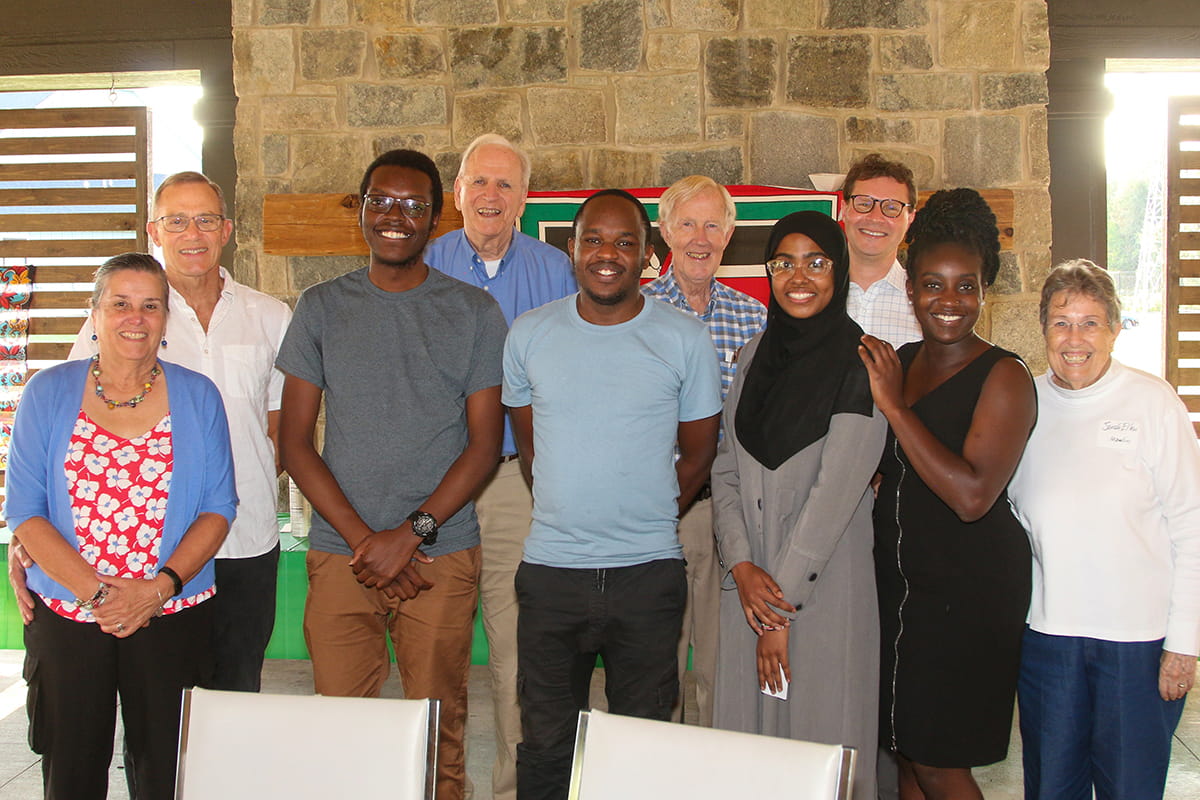Together, with our partners in Kenya, our AMPATH Consortium colleagues and leaders of IU School of Medicine and throughout the university, we are working to strengthen a sustainable health care system.
We are making great strides, but the work of addressing global health disparities—which have been more prominently brought to light over the last few years—is far from over. Global inflation, economic stagnation and food insecurity are posing serious challenges for the individuals and communities that AMPATH serves. AMPATH’s response to these challenges once again illustrates the power of our long-term institutional partnerships.
Leading with Care
Led by Moi University and Moi Teaching and Referral Hospital (MTRH), we continue to partner in the delivery of high-quality HIV services in nine counties with ongoing support from the government of Kenya and USAID/PEPFAR. These programs are surpassing impact targets such as linkage to care, HIV viral suppression, and number of orphans and vulnerable children receiving support. This month, MTRH Rafiki Center of Excellence in Adolescent Health was lauded as an innovative model of comprehensive adolescent care.
MTRH has also installed more equipment to meet the growing demand for radiotherapy services (over 60 cancer patients per day). Facility and community-based efforts to screen women for breast and cervical cancer have now reached over 200,000 people. Thanks to AMPATH’s efforts, those with concerning findings can access the care they deserve.
The AMPATH mental health team offers important and innovative services at the MTRH Nawiri Recovery & Skills Centre and has expanded access to mental health and substance use services in communities, partnering with schools and youth organizations to support young people.
In addition to the long-standing partnership in general surgery, collaborations in plastic surgery, orthopedics, neurosurgery, cardiothoracic surgery and ENT are growing in significant ways.
In Busia County, the AMPATH universal health coverage team is working closely with the county government and the National Health Insurance Fund (NHIF) to pilot an innovative strategy designed to support families in the informal sector in establishing and maintaining access to health care. Endorsed by the top national leadership of NHIF, the approach holds promise as a strategy for long-term health system sustainability.
Expanding the Global Health Workforce
Our robust, bilateral, trainee exchange program offers meaningful clinical global health experiences with increased emphasis on self-reflection and global power imbalances. Twenty-one Kenyan trainees were hosted by AMPATH Consortium partners for clinical rotations in 2022. Thirty-two IU medical students and residents completed rotations in Kenya, bringing the total number of IU trainees to complete rotations in Kenya to more than 1,100.
More robust training programs in several disciplines have been established using Project ECHO, a tele-education and mentoring platform. Moi University fellowships in gynecology-oncology, maternal-fetal medicine, cardiology, pediatric oncology and now medical oncology are training the next generation of providers in Kenya.
Generating Research to Inform Policy and Practice
The AMPATH Research program had another banner year with AMPATH investigators receiving more than $17.9 million in awards and publishing 159 articles in 2022.
One of these research efforts is the Primary Health Integrated Care Project for Chronic Conditions project, which is developing and piloting models of integrated care for non-communicable diseases at community and primary care levels. The findings are expected to inform the implementation and scale up of integrated primary care approaches in Kenya and other low- and middle-income countries.
Looking Ahead
The success of AMPATH Kenya has nurtured new partnerships in Ghana, Mexico and Nepal based on the same model. It was an absolute privilege to host both our Kenyan colleagues and new colleagues from around the world in Indianapolis last fall to strategize about improving health and well-being for people in underserved communities around the globe.
In Kenya, MTRH is adding new, cutting-edge imaging equipment and facilities for cardiac catheterization that will enable expansion of radiology and cardiovascular disease care. Investments in infrastructure and training will also expand the capacity to address spinal trauma and increase resources to care for children with disabilities and neurodevelopmental delays.
Growing partnerships in emergency medicine, dermatology, microbiology and antimicrobial stewardship, and multidisciplinary wound care will also have a great impact in the year ahead.
Our successes and plans are only possible through the support of people like you, sharing your time, talent and treasure to grow our partnership. Thank you. We are grateful that you are part of our family.
